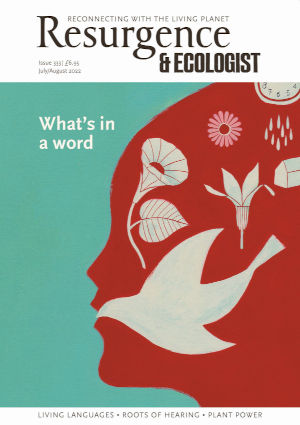I’ve been dreaming of adventure. I love my home, but that wanderlust remains. Yet international travel feels problematic on many levels: financially, carbon-wise, Covid, to name but a few. It’s. Just. Too. Complicated.
But what I can do is mind travel, and it works: I’ve just been to Madagascar. I discovered huge elephant birds, “the most dangerous birds in the world”, and giant tortoises, tenrecs, lemurs and chameleons. Some species live on today; many have vanished in the distant or recent past. Over vast stretches of time, Madagascar’s forests, upon which so many unique species depend, have expanded and contracted in response to shifting climate and human intervention.
The scope of The Sloth Lemur’s Song is truly mind-blowingly epic. It’s the book version of staring up into the night sky and feeling giddy vertigo at the tininess of self in the vastness of the universe. The focus is on this one island, yet it is the story of global seismic shifts, of land masses colliding and dividing, of centuries and centuries of change, right back to when Madagascar was a landlocked region in the ancient supercontinent Gondwana.
For every adventure, you need a perceptive, intelligent and compassionate guide. Ours is author Alison Richard, whose life’s work has been Madagascar. She has spent nearly 50 years researching and spending time on the island and is well established as an expert on the complex social systems amongst primates. She brings an intellectual rigour that explains and expands upon the latest scientific studies, weaving in diverse information from botany, biology, archaeology, geology and climatology. Who knew that stalagmites could provide a decade-by-decade record over thousands of years, telling of climate and vegetation changes in such a way that human actions in the far distant past can be determined?
What I enjoyed most, other than the beautifully told riotous colour and vibrancy of the island, is the way Richard brings to life the experiences of a researcher. She takes us with her, crossing rivers, sitting in a cold dawn accustoming sifaka lemurs to her presence, and, ugh, I can’t forget the leeches.
There is sensitivity and awareness of the challenges of the local people, the Malagasy. Once, Richard was told, “You conservationists are like the missionaries who came here in the past,” but she has developed a keen understanding of the tension between conservation and the daily efforts to survive for local people. It is the choice fundamentally between feeding your family today and saving the forest for the future. The compassion for the Malagasy made me feel I was part of the island, rather than a western voyeur criticising the actions of those we do not understand.
Although the book is jam-packed with life, it is also haunted. Ghost species walk amongst its pages, telling of loss and mystery. I was fascinated by the concept of ‘ghost lineages’, where there is a gap in fossil evidence but a creature can be inferred to exist because of genomic evidence. It’s complicated and intriguing, and Richard explains it far better than I can. Then there are the ghosts of species that no longer exist, due to extinction – not just those from the deep past such as the elephant bird and the gigantic Beelzebufo (popularly known as ‘the frog from hell’), but the sad roll-call of recently extinct species too: 15 species of primate, 12 species of bird, to mention just a few of the vanished.
If change is the only constant, then it should be no surprise that more is coming. Since people started arriving on Madagascar about 10,000 years ago, bringing new plants and animals with them, the pace of change has been fast. As forest cover continues to reduce, the survival of the rare and unique species of the island is increasingly threatened.
This is a love song, not only to Madagascar, but to the whole of our great, shared global history – a tale of enchanting and endangered biodiversity, of climatic shifts and the tensions that will always be between humans and Nature.







